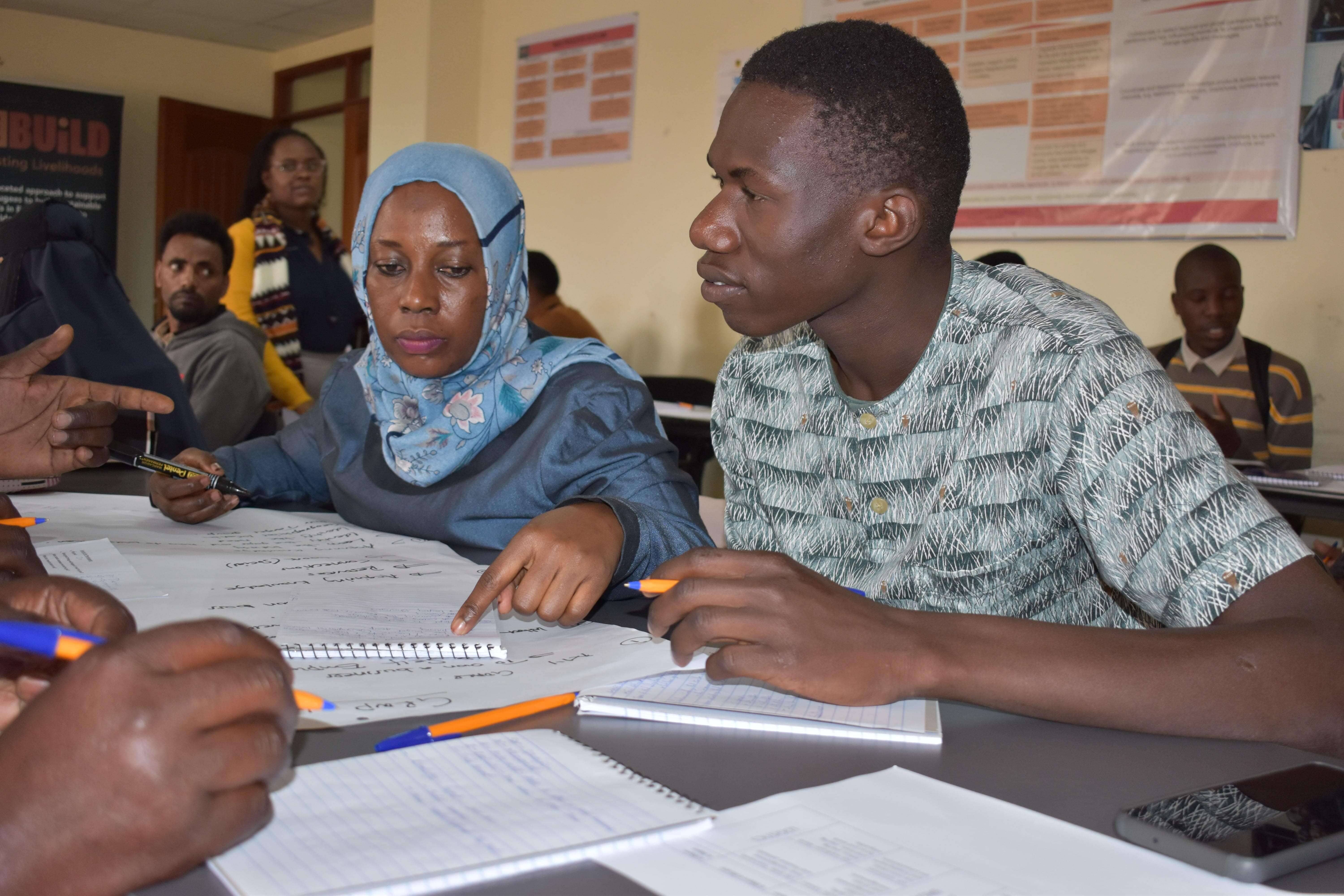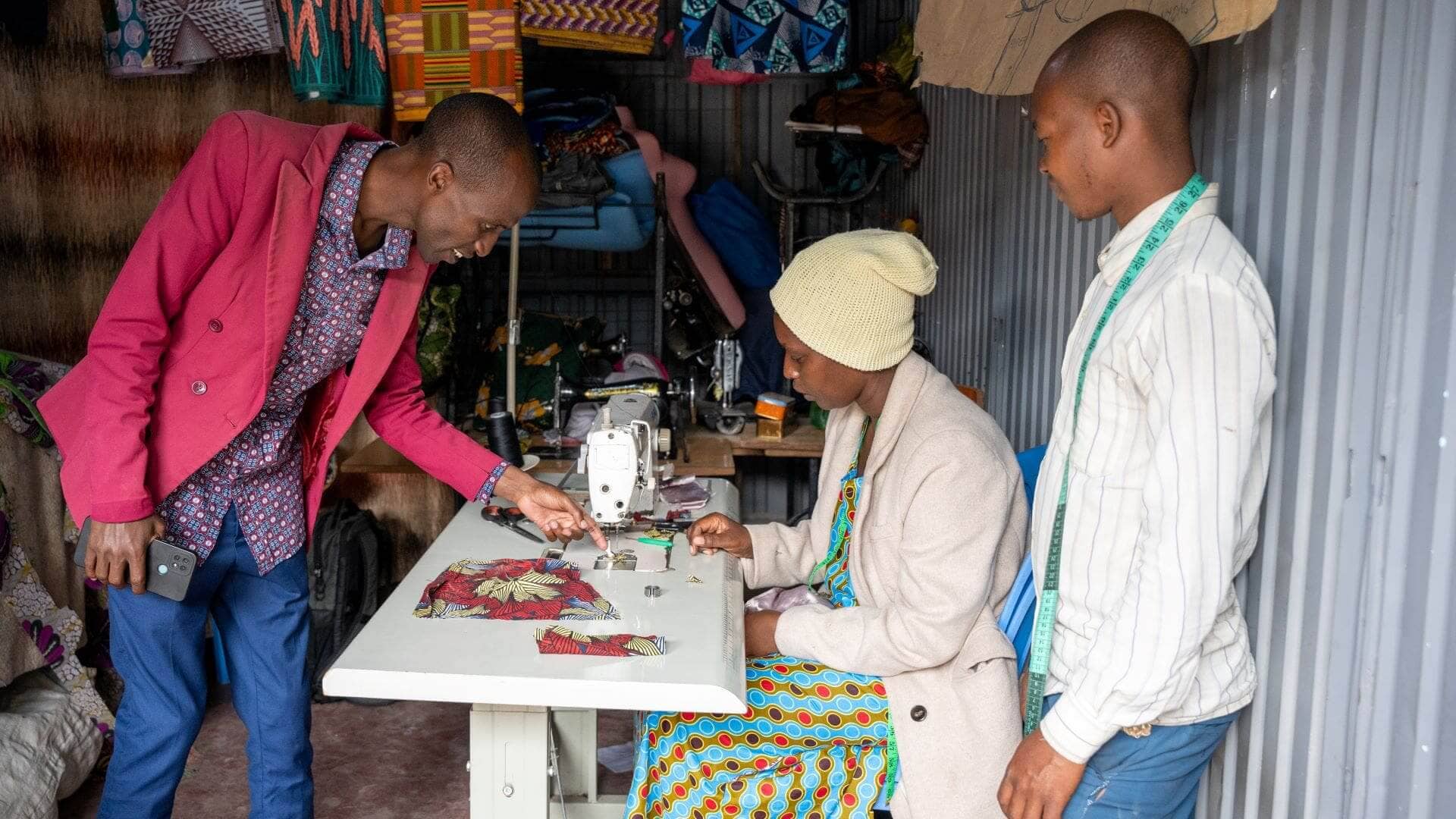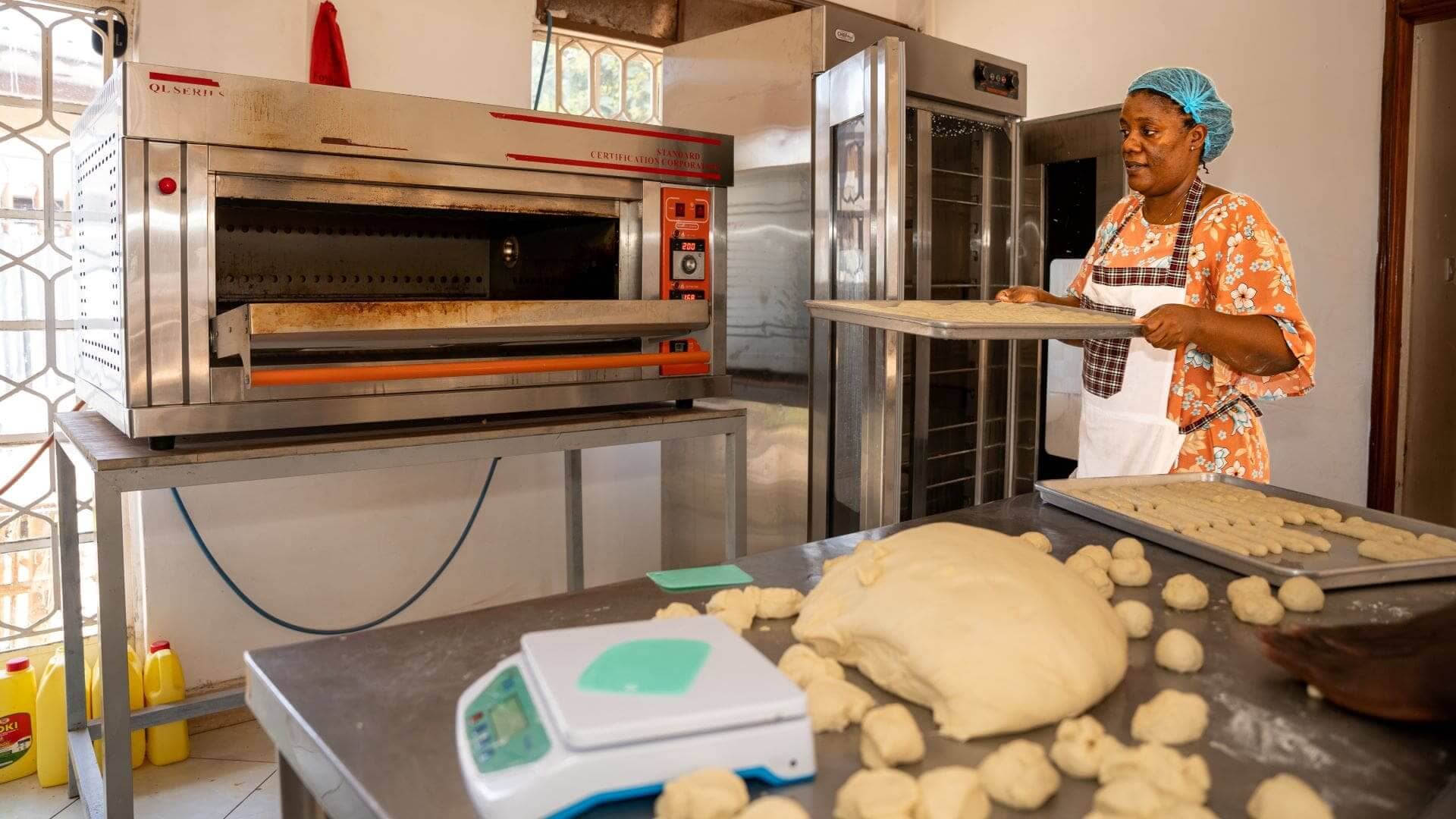Bridging services: Why the shift in delivery of services
Bridging services: Why the shift in delivery of services

Clients taking part in the bridging services which offered soft skills training, job readiness and job linkages in Nairobi. (PHOTO: Joseph Sosi/TheIRC))
At Re:BUiLD, the way we deliver services and interventions is bound to change from time to time. In 2023, we made a significant modification to the program leading to the launch of bridging services in June. At the time, approximately 2500 clients had completed services that were meant to better equip them to secure wage employment. We paused, looked back to assess the status of clients who had benefited from the popular vocational training services. We made a strategic shift, informed by findings and feedback from our clients.
Turning point
Findings from an evaluation of clients who received skilling services for wage employment; both from vocational training and apprenticeships showed many still needed support. In Nairobi, 46 percent were not engaged in an income generating activity. These was higher in Kampala where about 88% stated they were not attached to any economic activity. “In 2022, the program focused on promoting wage employment among the urban refugees and vulnerable hosts. When we assessed 891 clients, majority of them said they were not engaged in an economic activity at the time. They reported that they were looking for jobs,” says Vitaline Ajambo, Re:BuiLD’s Senior Livelihoods Officer in Kampala. The bridging services launched in both cities in June 2023 will focus on strengthening the employability of skilled clients. The program designed add-on services to ensure transition of more clients into wage employment and ultimately to self-reliance.
Clients enrolled under the program’s bridging services will be offered soft skills training, job readiness and job linkages through private sector engagements. The self employment training will encompass business skills training coupled with life skills training. These will be supplemented by financial literacy training and linkages to financial service providers.
Findings from the evaluation showed most clients in wage employment were in the beauty and cosmetics industry (22.8%) followed by the food and beverage sector (11.4%). Other sectors offering livelihood opportunities for clients were the textile, footwear (10.2%) and information technology (ICT) (9.0%). Some clients (7.7%) had secured opportunities in the engineering field.
Wage employment pathway huddles
Clients that were keen on wage employment opportunities cited lack of networks (45%), documentation (40%), lack of finances (32%), and limited opportunities in their field of interest (29%) as major obstacles. These are part of the challenges that the clients are expected to find a way around through bridging services. Christine Ndumi, 26, on enrolling for bridging services told Re:BUiLD in Action they were excited to see the program changing its focus to address the challenges raised during the assessment.
“I am happy that Re:BUiLD is considering what most of us really needed. I completed my internship and even volunteered for 3 months. For most of us, if we learn how to prepare CVs well, know how to find job opportunities, apply and do the interviews well, we can get employment,” affirmed Ndumi.
Re:BUiLD placed Ndumi on an internship at Lea Toto, a local organization that supports vulnerable children in Nairobi. Ndumi is a health records and information technologist trained at the Kenya Medical Training College in Msambweni.


